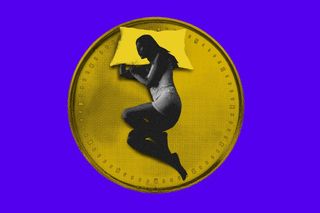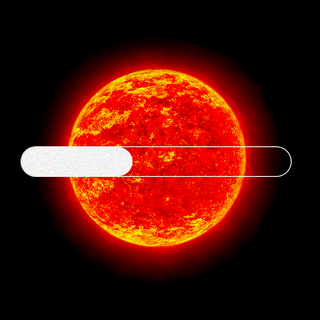
What Makes People Likely to Engage in Revenge Bedtime Procrastination, According to Science
Research shows people with a weaker “future-time perspective” are likelier to struggle with revenge bedtime procrastination than their peers.

“For many people, the cruelest part of daily life is the transition between wakefulness and sleep. When you should be sleeping, you want to be awake; when you should be awake, you want to stay asleep. It is easy to regard sleep as a torment: hard to attain and then hard to give up, day after day after day,” social scientist Arthur Brooks wrote in The Atlantic, describing the plight of those who have fallen prey to the cycle of revenge bedtime procrastination.
The concept of revenge bedtime procrastination is derived from the Chinese expression “bàofùxìng áoyè,” which means “retaliatory staying up late.” In other words, revenge bedtime procrastination refers to a decision — conscious or subconscious — that people in high-stress, time-consuming jobs often find themselves making, simply to sneak in a few hours of “me” time that their responsibilities didn’t permit them to include in the course of the day. “[It] describes the decision to sacrifice sleep for leisure time that is driven by a daily schedule lacking in free time. For people in high-stress jobs that take up the bulk of their day, [RBP] is a way to find a few hours of entertainment even though it results in insufficient sleep,” explains an article by Sleep Foundation.
Revenge bedtime procrastination became part of common internet lingo following a tweet by journalist Daphne K. Lee in 2020. The post went viral, resonating with thousands of people from across the globe — seemingly, revenge bedtime procrastination is a universal experience. However, a new study suggests that some people might be more prone to engaging in it than others. Published in the International Journal of Environmental Research and Public Health, the study found that people with a weaker “future-time perspective” — defined by the authors as “a general concern for and corresponding consideration of one’s future” — are more likely to struggle with revenge bedtime procrastination, compared to their peers.
The researchers enrolled more than 3,500 participants — aged between 11 to 23 — for the study. The participants filled in a questionnaire enabling the researchers to measure their future-time perspective, and then completed assessments on self-control and impulsivity, besides their propensity to indulge in problematic smartphone use and bedtime procrastination.
Related on The Swaddle:
How Sleeping Next to Our Partners Can Improve Our Health and Wellbeing
Unsurprisingly, higher problematic smartphone use was associated with greater revenge bedtime procrastination. What’s interesting about the research, though, is how its findings linked a variety of elements together. As it turns out, participants with stronger future-time perspectives were found to be less impulsive and demonstrated better self-control, which predicted a lesser likelihood of engaging in RBP night after night. People with a poorer sense of future-time — which, of course, indicated greater impulsiveness — were, unfortunately, less able to resist the urge to watch “just one more” YouTube video or read “just this last” Reddit post on their phones, quickly spiraling into revenge bedtime procrastination.
“Future-focused people have a higher expected value for long-term beneficial goals and are more aware of the value of regular sleep for their health and function… they fully consider the potential link between current behavior and distant outcomes and perceive themselves as moving forward from the present moment into the future, which makes the connection between the present and the future closer… [prompting them] to have stronger sleep intentions and go to bed on time,” the study notes.
Falling into the trap of revenge bedtime procrastination doesn’t have anything to do with how ambitious one is, or how much one cares about their work, though. It simply means one might have a poorer perspective of time — often, being neurodivergent can wire one that way. As a Reddit user pointed out in response to the latest study, Attention Deficit Hyperactivity Disorder (ADHD) can cause people to struggle with “poor impulse control and very limited thinking into the future — I can’t envision it, and I can’t work toward it.”
In fact, prior research has linked ADHD with poor time perception, too. The link between revenge bedtime procrastination and future-time perspective, then, makes one wonder if, among other things, this is why so many ADHD individuals struggle to go to bed on time.
Related on The Swaddle:
How Lack of Sleep Makes People Less Helpful, More Lonely
Depression, too, can lead people to “experience a distorted perception of time,” notes a study from 2019, which also goes on to state that “Depressive individuals find [that] time passes slowly and are preoccupied with the past.” Evidently, the combination of poor time perception and a fixation on the past, rather than the future, is exactly the recipe for revenge bedtime procrastination. And, in the past, depression has already been linked to revenge bedtime procrastination. As another Reddit user commented on the new study, “When I wasn’t happy with my life, I dreaded [going] to bed because I didn’t want the next day to arrive. For years. Now that I’m much happier, I’m always eager to start the next day,”
The fact that we’re caught in the “chronic loneliness epidemic” might also be a reason why people are turning to revenge bedtime procrastination to feel better. “We’re inherently social animals, and social media provides us with an access, a conduit to other people’s social lives,” Ashley Whillans had told Glamor as a behavioral scientist at Harvard Business School. According to her, scrolling through social media in a desperate attempt for leisure and human connection is an attempt to “take back control” by “imagin[ing] alternative realities of things we could be doing.” Speaking during the pandemic, she had linked revenge bedtime procrastination to depression, too.
However, depression and revenge bedtime procrastination can, together, birth a vicious cycle. “There’s lots of research showing that feeling like you have a bit of free time is super important for wellbeing… [But] many of the problems that drive revenge sleep procrastination — feeling depressed, being too burned out to enjoy your day, and so on — can be helped by simply getting more sleep,” Laurie Renee Santos, a cognitive scientist and professor of psychology at Yale University, explained.
As Santos cautioned, “I worry that people are creating a vicious cycle by ruining what leisure time they do have by not getting enough sleep.”
Devrupa Rakshit is an Associate Editor at The Swaddle. She is a lawyer by education, a poet by accident, a painter by shaukh, and autistic by birth. You can find her on Instagram @devruparakshit.
Related


AI Music Is Here. Can It Change the Future of Art?
